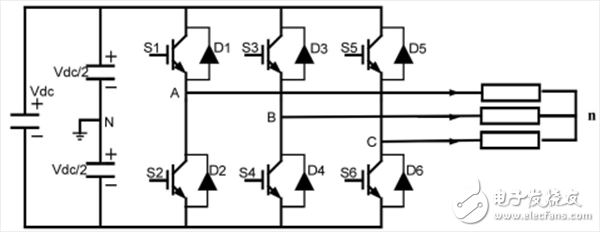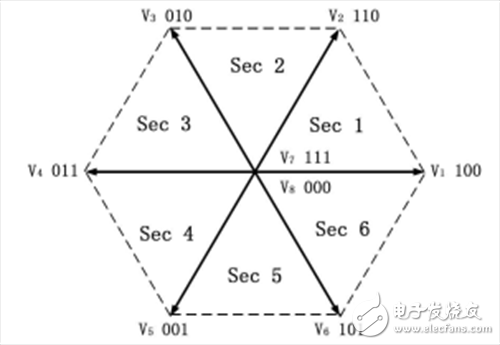Space Vector Pulse Width Modulation (SVPWM)
As the core technology of power electronic devices, PWM technology is widely used in variable frequency motor drive. The ultimate goal of motor control is to generate a circular rotating magnetic field, which produces a constant electromagnetic torque. In the PWM modulation method, space vector pulse width modulation (SVPWM) is widely used in the control of two-level voltage inverters because of its advantages for digital controller implementation, good output current waveform and high DC side voltage utilization. .
One, two-level voltage type inverter voltage space vectorWhen powered by a three-phase symmetrical sinusoidal voltage, the given voltage vector is a space vector whose amplitude is equal to the phase voltage amplitude, the motion trajectory of the end point is circular, and the angular velocity of rotation is the electrical angular frequency of the phase voltage. . According to the theory of global motor science, the integral of voltage is the flux linkage. If the stator flux to be produced is an ideal circular shape, the amplitude of the voltage space vector must be kept constant and the phase angle continuously changed. The number of voltage vectors that the inverter can output is very limited. SVPWM can guide the stator flux to form a nearly circular trajectory by rapidly alternately outputting the voltage vectors of the inverter.
Figure 1 shows the topology of a three-phase voltage inverter. Each phase contains two arms, each consisting of a controllable device and an anti-parallel diode. For a star-connected load, the phase voltage of each phase of the load can be obtained by calculating the potential difference between the load neutral point n and the imaginary midpoint N of the DC power source.

If six non-zero fundamental space voltage vectors are separately output, the stator flux vector can only form a hexagonal magnetic field as shown in FIG. 2, and cannot approach the circular magnetic field. In order to better approximate the circular magnetic field, there should be as many regular polygon edges as possible, that is, more inverter switch state combinations should be generated. SVPWM sees the inverter and Dongguan motor as a whole. Using 6 non-zero basic space voltage vectors to complete the linear combination can get more switch combinations. When the control system calculates a voltage space vector given value Vs according to the operating state of the AC motor, it can be synthesized by some adjacent two vectors in the six non-zero basic space vectors, and if there is extra time, it can be assigned to the zero vector. The voltage-controlled inverter is controlled such that the voltage space vector of the output in one control period Ts is integrated with time equal to Vs·Ts.

Interactive Smart Board,Smart Boards,Smart Board Projector,Smart Electric Board
ALLIN , https://www.displayapio.com
